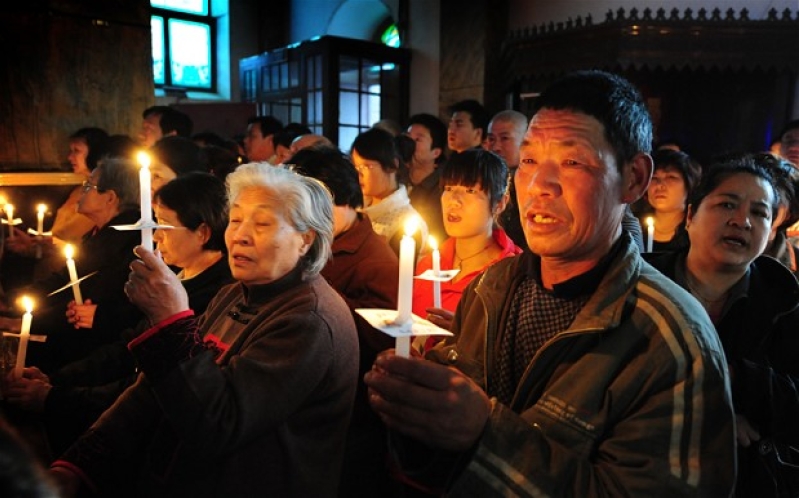
A local government communications agency in China recently held a seminar to discuss with Communist Party members the "enormous harm" Christianity is to the atheist nation and identify ways to stunt its growth.
According to Chinese Christian persecution watchdog China Aid, the event, titled "Christianity's Enormous Harm on China's Security," was held on April 22 in the city of Hebi in China's Henan province.
According to the NGO, the seminar encouraged party members to avoid being persuaded by Christian ideology and to sustain "correct views" when it comes to religion.
"The Chinese government often views religions, including Christianity, as foreign attempts to undermine its rule, even though there is no evidential basis for such a claim," China Aid reports. "As a result, they often try to suppress religious adherents, and they openly forbid Communist Party members from practicing a religion."
UCANews.com reports that the Hebi Municipal Radio Administrative Bureau in Henan publicly admitted to holding the seminar on its WeChat page.
"It said the seminar was to help members correctly understand Christianity and prevent the occurrence of ideological deviations," notes the outlet. However, the WeChat message was deleted only two days after it was released.
Fenggang Yang, a professor of sociology at Purdue University's Center on Religion and Chinese Society, estimated in 2017 that there are anywhere from 93 million to 115 million Christians in a nation of over 1.3 billion people, reports the South China Morning Post. It's estimated China is on track to have the largest Christian population in the world by 2030.
In efforts to control the growth and spread of Christianity, Communist authorities have shut down a number of prominent house churches and arrested Christians and church leaders for worshiping without the approval of the government. It has also cracked down on the online sale of Bibles; the Bible is printed in China but legally available only at church bookstores.
Ying Fuk-tsang, director of the divinity school at the Chinese University of Hong Kong, told ucanews.com that the Hebi seminar reflects the Chinese government's increasing controls of ideology in China through telecommunications and internet networks.
Ying explained that China's Communist Party has tended in recent years to exhibit extensive social management "through nonreligious ways to deal with religious issues."
"[T]herefore it is no longer a single religious department to manage religion, but the joint effort of different departments to manage all around," Ying explained, adding that he believes that President Xi Jinping is part of the effort to claim religion is a threat in China.
In light of these abuses, the U.S. Commission on International Religious Freedom listed China as a "country of particular concern" for religious freedom violations in its 2019 annual report.
Speaking at the National Religious Broadcasters convention in April, U.S. Ambassador-at-large for International Religious Freedom Sam Brownback identified China as a particularly oppressive, systematic persecutor of Christians, demonstrated by the destruction of churches and the arrest of pastors and religious adherents.
"Unfortunately, the United States is one of the few countries willing to stand up to China," Brownback said. "We need more allies to stand up to them, particularly on these issues of human rights and religious persecution."
Christian communicators, he emphasized, play an important role in combating religious persecution and alerting the public of the sobering reality Christians around the world face every day.
"We need a grassroots uprising saying, 'No more to religious persecution. No more,'" Brownback said. "It's through the reporting and story-telling that you do, of organizations like yours that can serve as catalysts for advocacy."






